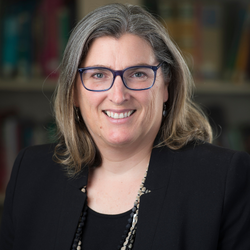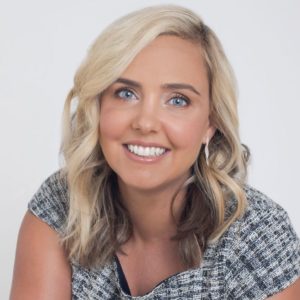
ANZA-SIDM 2022 Conference Speakers
Bill Bowtell
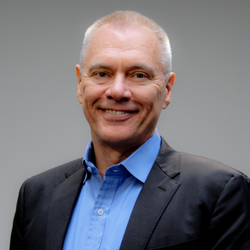
Presenting: Responding to Viral Pandemics; The Lessons from HIV and COVID
Bill Bowtell AO (@billbowtell) is one of Australia’s foremost health policy strategists.
As Chief of Staff to Australian Health Minister Dr Neal Blewett, he was an architect of Australia’s world-renowned response to the emergence and challenges of HIV/AIDS which brought together affected communities, researchers, clinicians and politicians, changing the course of the Australian pandemic and saving thousands of lives.
He was also deeply involved in the introduction of the Medicare national health insurance program.
Between 1994-96, Bill Bowtell served as senior political adviser to Prime Minister Paul Keating.
For over four decades, Bill Bowtell has served in many roles and capacities at the intersection of health, development and politics in Australia and internationally.
From 2005, Bill Bowtell led the advocacy organisation Pacific Friends of the Global Fund to Fight AIDS, Tuberculosis and Malaria to increase funding and support for the Global Fund and GAVI, the Vaccine Alliance.
Since the beginning of the COVID pandemic, Bill Bowtell has written, broadcast and tweeted extensively on the Australian and international responses to the pandemic.
Mark L. Graber
 Presenting: Advancing Diagnosis Education – An International Priority
Presenting: Advancing Diagnosis Education – An International Priority
Mark L. Graber MD, FACP is Professor Emeritus of Medicine at Stony Brook University, NY.
In 2014 he received the John M Eisenberg Award, the nation’s top honor in patient safety and quality for originating Patient Safety Awareness Week, and establishing the new field of diagnostic safety.
Mark is the Founder and President Emeritus of the Society to Improve Diagnosis in Medicine. He originated the annual Diagnostic Error in Medicine conference series, and founded the new journal, DIAGNOSIS, devoted to improving the quality and safety of diagnosis, and reducing diagnostic error.
Jill Klein
Co-f acilitating: Coping After Error
acilitating: Coping After Error
Jill Klein received her Ph.D. in Social Psychology from the University of Michigan in 1990. She then joined the faculty in the Marketing Department at Kellogg Graduate School of Management, Northwestern University. From 1997 through 2008 she was on the faculty at INSEAD. She joined Melbourne Business School in 2009, and Melbourne Medical School in 2015.
Jill teaches Clinical Decision Making, Leadership and Resilience. Her research interests are medical decision making, diagnostic error, and medical student well being. She has published widely, including in the British Medical Journal, Medical Education, Management Science and Harvard Business Review. She authored the book, We Got the Water: Tracing My Family’s Path Through Auschwitz and is currently writing Thriving in Medical School. She often appears in the media, and has had pieces published in The Guardian, Australian Financial Review, The Age and Huffington Post.
Jill plays soccer regularly and plans to continue to do so until her knees give out.
Farah Magrabi
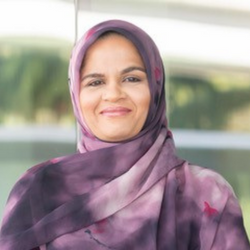 Presenting: Embedding machine learning in supporting diagnostic decisions
Presenting: Embedding machine learning in supporting diagnostic decisions
Farah Magrabi is a Professor of Medical Informatics at the Australian Institute of Health Innovation, Macquarie University. She has a background in Electrical and Biomedical Engineering with extensive expertise in the design and evaluation of digital health and Artificial Intelligence (AI) technologies for clinicians and consumers. Professor Magrabi is internationally recognised as a leader in the safety of digital health and has made major contributions to documenting the patient safety risks of digital health technologies. Her research has changed practice to detect IT risks to patients and has shaped policy to address digital health safety in Australia and overseas including a new specification by ISO, the International Organization for Standardization (ISO/TS 20405) for the surveillance and analysis of safety events. Professor Magrabi is an inaugural recipient of the Sax Institute’s Research Action Award (2015) and Telstra Health’s Brilliant Women in Digital Health award in 2021. She is currently investigating the integration and use of AI systems in real-world healthcare settings.
Danielle Ofri
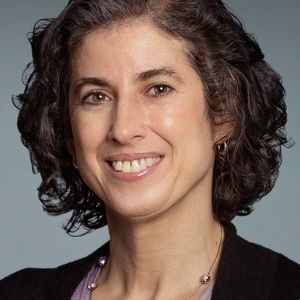
Presenting: Diagnostic Error in the Human Condition
Danielle Ofri is one of the foremost voices in the medical world today, speaking passionately about the doctor-patient relationship and bringing humanity back to health care. She has been a practicing physician at Bellevue Hospital for more than two decades and is a clinical professor of medicine at NYU. She is a founder and editor-in-chief of Bellevue Literary Review. Her writing appears in the New Yorker, the New York Times, Slate Magazine, The Lancet, NEJM, as well as in Best American Essays and Best American Science Writing. She has performed stories for the Moth and her TED talks include Deconstructing Perfection and Fear: A Necessary Emotion. Ofri is the author of six books about life in medicine. Her newest book is “When We Do Harm: A Doctor Confronts Medical Error.”
Amanda Walker
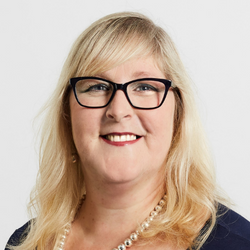
Presenting: Misdiagnosis in women
Associate Professor Amanda Walker is a Specialist in Palliative Medicine in the Southern Highlands of NSW, working as a Clinical Director at the Australian Commission on Safety and Quality in Health Care, and as a Clinical Advisor in Safety and Quality at eHealth NSW. She has led state-wide work in Diagnostic Error and End-of-Life Care at the Clinical Excellence Commission in NSW.
Sarah White
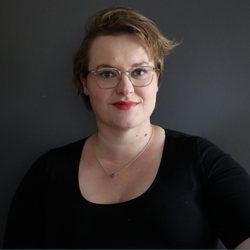
Co- facilitating: Analysing Communication: Explanation and Diagnosis in Interaction
Sarah White is a Senior Lecturer at the Centre for Social Impact, New South Wales; Honorary Senior Lecturer, Macquarie Medical School, Macquarie University; and Australian National Representative for the International Association for Communication in Healthcare.
Helen Haskell
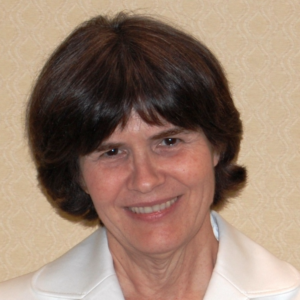 Presenting: Culture, Communication and Diagnosis - A Patient's Perspective
Presenting: Culture, Communication and Diagnosis - A Patient's Perspective
Helen Haskell is president of Mothers Against Medical Error and Consumers Advancing Patient Safety, and co-chair of the WHO Patients for Patient Safety Advisory Group. Since the medical error death of her young son Lewis, Helen has devoted herself to enhancing the patient contribution to healthcare safety and quality, in areas ranging from diagnostic accuracy to response to patient harm. She is a former chair of the SIDM Patient Engagement Committee and has served on numerous boards and committees including the boards of directors of the Institute for Healthcare Improvement, the ACGME, and the International Society for Rapid Response Systems. She is currently an IHI senior fellow. She has written journal articles, book chapters, and patient educational materials on patient safety and diagnosis, including a co-edited textbook of case studies from the patient perspective. Helen holds a bachelor's degree in Classical Studies from Duke University and a master’s degree in Anthropology from Rice University in the US.
Anne Duggan
 Presenting: Improving Diagnostic Safety, Quality, and Efficiency in Australia
Presenting: Improving Diagnostic Safety, Quality, and Efficiency in Australia
Professor Anne Duggan is the Chief Medical Officer at the Commission, providing expert clinical advice for the wide range of programs managed by the organisation.
Professor Duggan is a highly respected gastroenterologist with significant operating and leadership experience in a range of healthcare settings. She is also Conjoint Professor, School of Medicine and Public Health, University of Newcastle.
Professor Duggan is passionate about improving healthcare services through sharing knowledge and collaborating across all aspects of the health system. She leads the development of the Commission's Australian Atlas of Healthcare Variation series.
As Chief Medical Officer, Professor Duggan has a significant role in identifying potential synergies, partnerships and opportunities across the Australian health sector in collaboration with all health sector stakeholders, and providing leadership and education around the latest evidence on safety and quality in health care.
As of September 2021 Anne is Chair of the new Australian Government Medicare Benefits Schedule (MBS) Review Advisory Committee (MRAC).
As of November 2021 Anne is a member of the Expert Panel of Ahpra and Medical Board of Australia Review of the Regulation of Health Practitioners in Cosmetic Surgery.
Geoff Toogood
 Dr Geoff Toogood has been a Cardiologist for 30 years. He is also a mental health advocate, especially for doctors and health care workers, and is a speaker for Beyond Blue. Geoff speaks regularly to break the stigma and to create hope and recovery.
Dr Geoff Toogood has been a Cardiologist for 30 years. He is also a mental health advocate, especially for doctors and health care workers, and is a speaker for Beyond Blue. Geoff speaks regularly to break the stigma and to create hope and recovery.
Geoff founded crazysocks4docs to further the aim of reducing suicide in doctors.
Geoff has been awarded a number of awards for his work in this area including the prestigious AMA Presidents award.
Margie Shofer
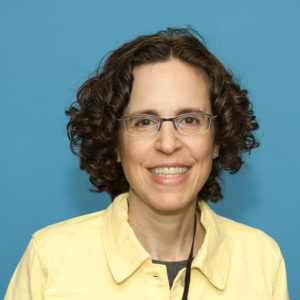 Margie Shofer, the Director of the General Patient Safety Program within the Center for Quality Improvement and Patient Safety (CQuIPS) at the Agency for Healthcare Research and Quality (AHRQ), manages the Agency’s activities related to general patient safety issues including funding of grants and contracts, and development and dissemination of evidence-based patient safety tools and resources. She has a particular interest in engaging patients and families to improve patient safety and oversaw the work to develop three different AHRQ resources to engage patients and families in their care in ways that improve patient safety.
Margie Shofer, the Director of the General Patient Safety Program within the Center for Quality Improvement and Patient Safety (CQuIPS) at the Agency for Healthcare Research and Quality (AHRQ), manages the Agency’s activities related to general patient safety issues including funding of grants and contracts, and development and dissemination of evidence-based patient safety tools and resources. She has a particular interest in engaging patients and families to improve patient safety and oversaw the work to develop three different AHRQ resources to engage patients and families in their care in ways that improve patient safety.
Before working in CQuIPS, Margie oversaw several different AHRQ learning networks, including the Medicaid Medical Directors Learning Network and the High Reliability Organizations Learning Network. Prior to working at AHRQ, Ms. Shofer was a senior policy analyst with the American Association of Health Plans, assistant staff to the Health Committee at the National Conference of State Legislatures, and committee staff for the House Environmental Matters Committee of the Maryland General Assembly. Ms. Shofer began her health care career working as an RN at the Hospital of the University of Pennsylvania in Philadelphia. She graduated from the University of Pennsylvania with a Bachelor of Science in Nursing and from Boston University’s MBA program where she concentrated in health care management.
Snehal Patel
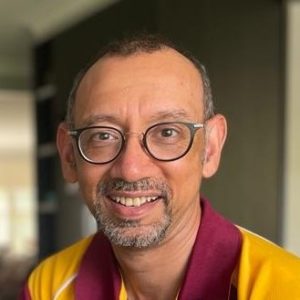 Dr Snehal Patel has been a GP for 25 years and practice owner since 2000 in Bligh Park, Sydney. He is actively involved in medical education having supervised registrars for 20 years. He is also actively involved with the RACGP as a senior examiner as well as being a Associate Clinical Lecturer at the Medical school at the Univ of Notre Dame. In addition, he recently started working as a Performance Assessor for the NSW Medical Council. His interests include chronic disease management especially Diabetes, Heart Disease and Lung Disease.
Dr Snehal Patel has been a GP for 25 years and practice owner since 2000 in Bligh Park, Sydney. He is actively involved in medical education having supervised registrars for 20 years. He is also actively involved with the RACGP as a senior examiner as well as being a Associate Clinical Lecturer at the Medical school at the Univ of Notre Dame. In addition, he recently started working as a Performance Assessor for the NSW Medical Council. His interests include chronic disease management especially Diabetes, Heart Disease and Lung Disease.
Lachlan Crowe

Presenting: How insurers can work with clinicians
Lachlan Crowe is an experienced improvement and healthcare professional. He leads VMIA’s acute care harm prevention program of work, supporting health services and clinicians to improve outcomes and prevent avoidable patient harm.
Lachlan is an Associate Fellow of the Australasian College of Health Service Management and has completed a Master of Health Management. Prior to his work in projects and quality improvement he worked clinically as a physiotherapist in Australia and the English NHS.
Prof David Watters
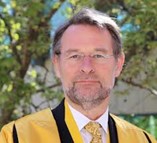
Presenting: Perioperative Harm Prevention
Professor David Watters is the Alfred Deakin Professor at Deakin University, and has been based at University Hospital Geelong since 2000. He is the chair of the Victorian Perioperative Consultative Council (VPCC) and a Past President of RACS (2015-2016). His research interests include surgical audit, perioperative outcomes, global health, endocrine and colorectal surgery, leadership and clinical decision making. Prior to moving to Geelong he worked in Papua New Guinea, Hong Kong, Southern Africa and Scotland.
Mary Dahm

Co- facilitating: Analysing Communication: Explanation and Diagnosis in Interaction
Dr Mary Dahm is a Research Fellow at the Institute for Communication in Health Care (ICH) at the Australian National University. Mary is a linguist analysing how the little (or big) things we do (or don't do) with language impact on patient safety and quality of care. She has a keen interest in ‘Communicating to Improve Diagnosis, Culture and Safety’, improving the critical diagnostic conversations clinicians have with patients and other clinicians, from history taking to providing diagnosis, discussing risk and managing and communicating uncertainty. In 2021, Mary was award a prestigious Discovery Early Career Fellowship Award (DECRA) from the Australian Research Council for a project entitled “Addressing the challenge of communicating uncertainty in diagnosis”. She will commence work on her DECRA project in 2022.
Julia Harrison
Co-facilitating: Coping After Error
Co-facilitating: Tips to Improve the Teaching of Diagnostic Reasoning to Julia Harrison’s speaker profile?
Associate Professor Julia Harrison is an Emergency Physician and Director of Undergraduate Medical Education at Monash Health. Julia is the Unit Coordinator of Patient Safety and Preparation for Practice at Monash Medicine, and Incoming Deputy Head of the Monash Medicine Course at Monash University.
Annemarie Jutel
Presenting: The Social Life of Diagnosis
Annemarie Jutel was originally trained as a nurse but is now a sociologist of diagnosis, Professor of Health and Associate Dean of health at Te Herenga Waka-VUW. She has written broadly about diagnosis as a social phenomenon and is an international leader in the field of sociology of diagnosis. Her books, Putting a Name to It: Diagnosis in Contemporary Society (JHUP); Social Issues in Diagnosis (JHUP) and Diagnosis: Truths and Tales (UTP) are at the forefront of critical thinking about diagnosis in medicine and in contemporary society. She was the director of Mataora: Encounters Between Medicine and the Arts.
Jennifer Neil
Co-facilitating: Preventing Cognitive Errors in Diagnostic Reasoning.
Dr Jennifer Neil is curriculum and assessment lead at Monash University Department of General Practice which has a strong emphasis on teaching clinical reasoning. She has developed and delivered clinical reasoning curriculum to medical students who are undertaking their general practice rotation. She is also a GP educator in family violence having taught hundreds of primary care professionals throughout Australia through Safer Families (The University of Melbourne), The Harmony Study (LaTrobe University) and webinars. She has co-authored three chapters in the RACGP guideline on abuse and violence. She works clinically as a GP in Balwyn, Victoria where she has interests in supporting survivors of trauma and abuse, mental health, women's health and chronic disease management.
Jen Morris
Presenting: Protracted Diagnostic Error: Life and Death in Limbo
Jen Morris is a patient perspectives advisor and patient safety advocate with a focus on diagnosis inequity and patient harm (adverse) events. She is currently a patient safety incident investigator for Safer Care Victoria, member of the Occupational Therapy Board of Australia, and patient teaching associate in the medical schools of Monash University and Deakin University.
Jen’s advocacy and advisory experience spans the whole quality and safety improvement spectrum. This includes roles in research (University of Melbourne, National Health and Medical Research Council), health service culture (Mercy Health), complaint management (Victorian Health Complaints Commissioner and the Australian Health Practitioner Regulation Agency), incident review (Eastern Health and Safer Care Victoria), practitioner education (Australasian College for Emergency Medicine, Eastern Health Clinical School), behaviour change initiatives (NPS MedicineWise), regulatory oversight (Occupational Therapy Board of Australia), and systems design (Victorian Clinical Council).
Ian Scott
Presenting: Can EMR-enabled Computerised Decision Aids Improve Diagnostic Reasoning?
Co-facilitating: Tips to Improve the Teaching of Diagnostic Reasoning
Co-facilitating: Preventing Cognitive Errors in Diagnostic Reasoning
Dr Ian Scott is consultant general physician and Director of Internal Medicine and Clinical Epidemiology at Princess Alexandra Hospital in Brisbane, and Professor of Medicine at University of Queensland. He has longstanding research interests in evidence-based medicine, clinical reasoning, diagnostic error, clinical informatics and quality and safety improvement. He is a founding member of ANZA-SIDM, chairs the Metro South Clinical AI Working Group, has co-authored several papers on diagnostic error and the use of AI in healthcare, and is working with colleagues in Queensland Health in developing and evaluating AI applications in diagnosis and therapeutics.
Ken Sikaris
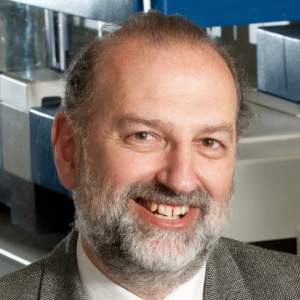 Presenting: Improving the Use of Laboratory Investigations
Presenting: Improving the Use of Laboratory Investigations
Ken has been a chemical pathologist for 30 years, ensuring that laboratory tests fulfil their purpose and advising clinicians on the appropriate tests to request, as well as how to interpret the results. He has been on several national and international committees involved in the quality of laboratory tests as well as the interpretation of tests using reference intervals and clinical decision limits. Dr Sikaris is also on Medicare Benefit Schedule advisory committees and is very familiar with discussions on the value of laboratory tests. As chair of the Royal College of Pathologists of Australasia’ Informatics committee, Ken has been involved in promoting medical inter-operability standards and he has related interest in electronic clinical decision support (eCDS). He also has an interest in low carbohydrate diets and was ‘Professor Blood’ in ‘That Sugar Film’, as well as having several YouTube lectures with hundreds of thousands of views.
Dominic Dwyer
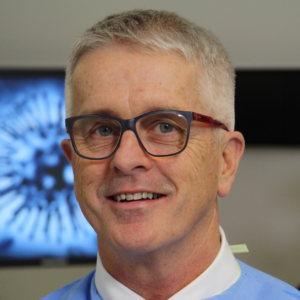 Presenting: From point-of-need diagnostics to real-time viral genomics: The laboratory during the COVID-19 era
Presenting: From point-of-need diagnostics to real-time viral genomics: The laboratory during the COVID-19 era
Professor Dominic Dwyer is a medical virologist and infectious diseases physician based at Westmead Hospital and the University of Sydney, in Sydney, Australia. He is the Director of Public Health Pathology for New South Wales Health Pathology, and is Director of the NSWHP-Institute of Clinical Pathology and Medical Research (ICPMR) at Westmead.
He undertook postgraduate research in HIV/AIDS at the Institut Pasteur in Paris, France. He has a clinical and research interest in viral diseases of public health importance, including SARS-CoV-2, influenza and other respiratory viruses, HIV, antiviral drug resistance and arboviruses. He is actively involved in investigations of outbreaks of viral infections, including at mass gatherings and closed environments.
He leads the World Health Organization (WHO) National Influenza Centre located at the ICPMR and worked with WHO during the SARS outbreak in China in 2003. He was a member of the World Health Organisation Joint Mission on the Origins of SARS-CoV-2 in Wuhan, China in 2021.
Mingguang He
 Presenting: Using Deep Learning Algorithm to Standardise Glaucoma Detection at Real-world Optometry Clinics
Presenting: Using Deep Learning Algorithm to Standardise Glaucoma Detection at Real-world Optometry Clinics
Professor Mingguang He is Professor of Ophthalmic Epidemiology at University of Melbourne and Centre for Eye Research Australia, and Director of WHO Collaborating Centre for Prevention of Blindness (Australia). He is former Associate President and Professor of Ophthalmology in the Zhongshan Ophthalmic Center (ZOC), Sun Yat-sen University.
He is a global expert in vision-related clinical and epidemiologic research. He published his clinical trial to prove the efficacy of increased outdoor time on myopia prevention in JAMA in 2015, and his prophylactic clinical trial on angle-closure glaucoma in Lancet in 2019. He has rich experience in the research and real-world deployment of teleophthalmology and artificial intelligence (AI). He has received several major research grants in Australia, including NHMRC investigator Grant and Medical Research Future Fund on his AI research. He has published more than 430 publications which have attracted more than 20,000 citations.
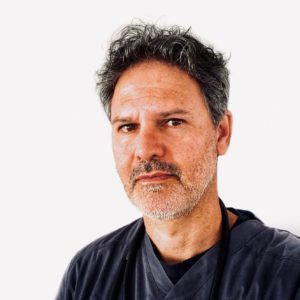 Glenn Harrison
Glenn Harrison
Glenn Harrison is an Aboriginal Emergency Physician (FACEM) working in Naarm (Melbourne, Australia) at Royal Melbourne Hospital and Epworth Hospital Geelong (Wathaurong). He is Australias’ 1st Aboriginal Emergency Physician and is passionate about increasing the number of Aboriginal & Torres Strait islander specialists. He is a Wotjobaluk descendant with connections to the Gunai Kurnia community and the Wathaurong lands on which he was born.
Glenn is a co-chair of the Australasian College for Emergency Medicine (ACEM) Indigenous Health Committee, a Board Director of the Australian Indigenous Doctors Association (AIDA) and holds positions on Reconciliation Action Plan committees for ACEM & Royal Melbourne Hospital, he is a member of the Australian Medical Association Federal Indigenous Health Taskforce.
Glenn is the co-ordinator of the Indigenous Intern program at Royal Melbourne Hospital.
John Vaughan
 Dr John Vaughan has been a supervisor for 36 years and until 2020 was a rural GP. He has a long standing passionate commitment to registrar and medical student education. He is a GP in Summer hill, Sydney and Medical Educator with Supervisor Portfolio (MESP) with GP Synergy.
Dr John Vaughan has been a supervisor for 36 years and until 2020 was a rural GP. He has a long standing passionate commitment to registrar and medical student education. He is a GP in Summer hill, Sydney and Medical Educator with Supervisor Portfolio (MESP) with GP Synergy.
Allison Miller
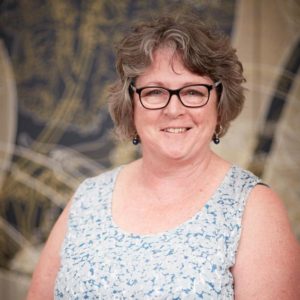 Dr Allison Miller is GP Synergy’s Regional Head of Education for the South East of NSW. She did her undergraduate medical training at the University of Newcastle, then worked as a General Practitioner in Sydney, New Zealand and rural NSW before moving to Wollongong in 2005. She works as a GP in Shellharbour, and has an interest in Exam Preparation, Remediation, Medical Error and Clinical Reasoning.
Dr Allison Miller is GP Synergy’s Regional Head of Education for the South East of NSW. She did her undergraduate medical training at the University of Newcastle, then worked as a General Practitioner in Sydney, New Zealand and rural NSW before moving to Wollongong in 2005. She works as a GP in Shellharbour, and has an interest in Exam Preparation, Remediation, Medical Error and Clinical Reasoning.
Prof Peter Cameron
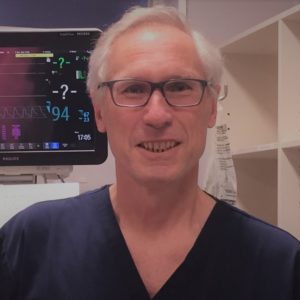
Presenting: Harm Prevention in the Emergency Department
Professor Peter Cameron is the Academic Director of the Alfred Emergency and Trauma Centre. He has just finished a term as clinical lead for emergency medicine at Safer Care Victoria.
Peter works clinically and also has an active research program, having published more than 600 peer-reviewed papers as well as two multi- edition texts on emergency medicine. He is a past president of the Australsian College for Emergency Medicine (ACEM) and the International Federation for Emergency Medicine (IFEM).
Cecile Carbonnel

Presenting: Incentivising better patient safety programs
Cécile Carbonnel is the Maternity Projects Lead in the Harm Prevention Team at VMIA. Through the changes provided to the VMIA incentivising program she has supported maternity services to sustain essential clinicians’ training during the COVID-19 pandemic. She works in collaboration with Safer Care Victoria, the Consultative Council on Obstetric and Paediatric Mortality and Morbidity and the Department of Health. Cécile has 20-year clinical career that started as a midwife in France and finished as a maternity educator in Victoria. She specialised in birth suite emergency and neonatal simulation training, after a brief stint in research with Monash University.
Registration is Now Open!
Register now to secure your early bird rate for the conference.
Join the Mailing List
Join the conference mailing list to be the first to know about the conference, including speaker announcements, topics, and key deadlines.

